Nietzsche and the Übermensch

In Thus Spoke Zarathustra, Nietzsche – like many other great authors before (and after) him – creates a character through which he can “explore” ideas, through which he can communicate directly from mind you might say. Plato was the master at this of course, leaving behind a web of tales and likely stories that have left us for millennia now speculating over who meant what and to whom. We find ourselves doing similar things when reading Thus Spoke Zarathustra and this is no doubt b design.
This is by the way, a perfect example of how man is like a machine and how we very well just might, and probably are, living in some sort of artificial simulation. Simulations within simulations, avatars created by avatars…. How deep does the rabbit hole go? How far must we climb to find ourselves free from the abyss? It’s a video game. Like for real.
From Homo Machina’s perspective, this is an example of how the mind is capable of compartmentalizing like this, the mental machinations forking off new entity, separate memory and computing resources for a new process through which experience can be had, through which consciousness can exist. This is exactly what operating systems do, what they are really good at doing in fact. And humans are no exception. This is where schizophrenia comes from. New entities created, forked off, as a sort of protection to the core – so it can survive and the trauma is buried so deep it becomes impossible to find even for the persona. This isn’t a bug of the mind, it’s a feature and sometimes it goes horribly wrong.
In Thus Spoke Zarathustra we find Nietzsche presenting the famed character Zarathustra to us, the ancient Persian sage of Iranian lore – the greatest of all Magis (magicians). Nietzsche tells us that he comes down from the mountain tops and has a great discovery to share with the people. The scene is described vividly, in poetic, almost prophetic verse:
When Zarathustra arrived at the nearest town which adjoineth the forest, he found many people assembled in the market-place; for it had been announced that a rope-dancer would give a performance. And Zarathustra spake thus unto the people:
I TEACH YOU THE SUPERMAN. Man is something that is to be surpassed. What have ye done to surpass man?
All beings hitherto have created something beyond themselves: and ye want to be the ebb of that great tide, and would rather go back to the beast than surpass man?
What is the ape to man? A laughing-stock, a thing of shame. And just the same shall man be to the Superman: a laughing-stock, a thing of shame.
Ye have made your way from the worm to man, and much within you is still worm. Once were ye apes, and even yet man is more of an ape than any of the apes.
Even the wisest among you is only a disharmony and hybrid of plant and phantom. But do I bid you become phantoms or plants?
Lo, I teach you the Superman!
The Superman is the meaning of the earth. Let your will say: The Superman SHALL BE the meaning of the earth!
I conjure you, my brethren, REMAIN TRUE TO THE EARTH, and believe not those who speak unto you of superearthly hopes! Poisoners are they, whether they know it or not.
Despisers of life are they, decaying ones and poisoned ones themselves, of whom the earth is weary: so away with them!
Once blasphemy against God was the greatest blasphemy; but God died, and therewith also those blasphemers. To blaspheme the earth is now the dreadfulest sin, and to rate the heart of the unknowable higher than the meaning of the earth!
Once the soul looked contemptuously on the body, and then that contempt was the supreme thing:—the soul wished the body meagre, ghastly, and famished. Thus it thought to escape from the body and the earth.
Oh, that soul was itself meagre, ghastly, and famished; and cruelty was the delight of that soul!
But ye, also, my brethren, tell me: What doth your body say about your soul? Is your soul not poverty and pollution and wretched self-complacency?
Verily, a polluted stream is man. One must be a sea, to receive a polluted stream without becoming impure.
Lo, I teach you the Superman: he is that sea; in him can your great contempt be submerged.[1]
They think faux rope-dancer is mad of course, and would very much prefer the real rope-dancer performance. Who can blame them? Who wants to be jolted out of their ignorance? Shall we not be entertained? Philosophy? To what end?
But he presents a unique idea here, claiming that a new age has dawned where man evolves to become something different, to become the overman, the ubermensch, to become superman – to overcome himself as civilized man overcame the apes. To evolve. To metamorphize into superman.
But this faux rope-dancer is met with a frosty reception, the crowd wants the entertainment that they came all that way to see. So Zarathustra pleads with them, tries to cajole them a bit with a little fancy and spice. He treats them as children in a way, children that need to know of a blanket they can hold onto when they are cold at night, an arm they can rest on when they are weary and tired. And so he tells them more about this Superman.
What is the greatest thing ye can experience? It is the hour of great contempt. The hour in which even your happiness becometh loathsome unto you, and so also your reason and virtue.
The hour when ye say: “What good is my happiness! It is poverty and pollution and wretched self-complacency. But my happiness should justify existence itself!”
The hour when ye say: “What good is my reason! Doth it long for knowledge as the lion for his food? It is poverty and pollution and wretched self-complacency!”
The hour when ye say: “What good is my virtue! As yet it hath not made me passionate. How weary I am of my good and my bad! It is all poverty and pollution and wretched self-complacency!”
The hour when ye say: “What good is my justice! I do not see that I am fervour and fuel. The just, however, are fervour and fuel!”
The hour when ye say: “What good is my pity! Is not pity the cross on which he is nailed who loveth man? But my pity is not a crucifixion.”
Have ye ever spoken thus? Have ye ever cried thus? Ah! would that I had heard you crying thus!
It is not your sin—it is your self-satisfaction that crieth unto heaven; your very sparingness in sin crieth unto heaven!
Where is the lightning to lick you with its tongue? Where is the frenzy with which ye should be inoculated?
Lo, I teach you the Superman: he is that lightning, he is that frenzy!—[2]
He shows his Dionysian bent here, with this chaotic thunder awakening (Dionysus was the son of Zeus after all) described as that light, that frenzy of life, that madness, that you see clear as day that makes this world look pale and dark in comparison. This brilliance, this thunder, this is Superman. The experience of which renders virtue, vice, happiness and despair to nothing, for the mirages that they truly are.
We confront a related idea with Jung, what he calls synchronicity – an acausal connection principle that is ripe with meaning – to gain a better understanding of the relationship between madness and mysticism. For in this Jungian sense, this Bohmian implicate order if you will, requires that the cracking the open of cosmic mind, the purification of the mind as filter following Kripal, be done from both inside the house (spiritual effort, sadhana) and outside the house (grace).
Superman is the guy on the outside of the house at one level and on another level of course you are Superman.
Dreams are normally where this correction, these psychic corrections take place – dreams and sleep. This is in effect a manifestation of the realignment of the psyche along archetypical lines, archetypes that rest upon socially constructed narratives, mythos. Sleep is a dive into the unconscious, into the watery abyss. And from this abyss, order, and in turn ultimately life, emerges.
At birth but upon awakening as well – every day and through initiations and rites as the individual passes through various stages of life, birth adolescence adulthood marriage spiritual birth and so on. The cosmogonic cycle at the micro and macro dimension, along multiple dimensions really – the motif reapplied for the proper situation (rites and rituals again) to actualize the change, the new state of being. It’s a new day, you’re reborn into a new phase of life, etc.
There is a big difference as to whether or not these major psychological shifts are orchestrated within the context of rite and ritual (as they were in antiquity) or if they are chemically induced (which happens all too often now). But regardless, and this is an important point, the shifts must occur.
These are quantum psychologically leaps, and this is the very nature of the Soul to exhibit such behavior. And from a scientific perspective you can orchestrate these shifts in a controlled fashion (much preferred) or you can have them manifest in some random chaotic way, i.e. an uncontrolled environment. Former is much preferred of course but we can’t do that until our basic institutions understand this as a foundational stone of not just quantum mechanics but psychology as well, and as such better systems of supporting and facilitating such shifts should be pursued with vigor.
This wouldn’t be such a massive social problem right now in the West if religion hadn’t been completely abandoned. Some of these methods and practices, albeit very watered down, are implemented in some cross sections of society. In the Jewish tradition for example we have the bar mitzvah and the bat mitzvah, where a youth comes of age as well. The Native American peoples had sacred rights of passage for these youth, and most involved the forced psychological restructuring that came along with these rites of passages. The mind was literally re-wired to handle the new state of being, i.e. adulthood.[3]
We have no such thing here in the West and we wonder why our youth today are so lost and confused. Their lives are not sacred. What is to be had with regards to purpose, or even beauty, in the profane outside of some passing joy or bliss which fades in luster as quickly as it comes. Is this all that there is? Would you not ask such questions?
The psychic organism is design to adapt to its environment, optimizing itself. And the organism has also been designed, or has adapted to through design, different stages of life, different stages of being essentially – birth and youth, adulthood, middle age, old age and death (if we’re lucky). Each phase of life must be looked at independently in terms of priorities and right behavior, and this understanding must align across gender and station in life dimensions as well.
Understanding this is understanding one’s dharma. Most people don’t even know what this is, but like karma, it doesn’t matter if you do or don’t, it’s still the law which is quite literally what it means.[4]
As we evolved into more advanced societies, out of the hunter gatherer more primal ways, we had to develop rituals and mystico-religious structures to support said rituals (mythos, theos) that supported the growth and healthy functioning of societies.
Religion itself follows this evolutionary path[5] – take the quantum leap into Christianity that we have in ancient in the Roman Empire with the adoption of Christianity on his deathbed by Constantine. He knew that this was required to keep the kingdom together, to bind it together.
We can also see a similar type of shift in ancient China with the adoption of the King Wen, or Later Heaven bāguà arrangement over the Earlier Heaven, Fu Xi arrangement, placing emphasis on the society, family and cultural values rather than more core metaphysically principles (of eight) that are emphasized in the earlier arrangement of Fu Xi. Both arrangements are true of course, but we can see this evolution – this change – requisite in each new era. A shifting of the bāguà, a renaming, is necessary once again.
This has always been the purpose of religion really, in a sense, to bind us together with a common belief, and value system. This is not necessarily a bad thing, but it must be grounded in what is true, what is real. It must “speak” to us. Otherwise it will be discarded. As religion has today.
This evolutionary process is not just quantized – meaning that leaps of growth do not follow a clean, continuous path, they are transitioned to different (hopefully higher) states of being quite radically and almost instantaneously – but also is a rehashing and restructuring of old ideas into something new. A cosmic soup re-using some old ingredients but adding a dash of something new, changing the taste and aroma of the soup altogether.
It is the ouroboros really, the snake eating itself – the psyche consuming itself in order to be reborn. This done nightly, and manifests in the fetal position where most people sleep. Consciousness then re-emerges. Sleep is essential to our ability to function, our ability to survive in this complex world in fact. If we don’t sleep we die apparently.
Baeumler preferred to call ‘the image of the world that Nietzsche envisioned Heraclitean rather than Dionysian. Heraclitus from Ephesus – from whom originated the words: “war is the father of all things” – was the thinker whom Nietzsche regarded as his essential next-of-kin [Urverwandter] and whom he most admired throughout his life’. The endlessly evolving world was one of ‘becoming’, of ‘struggle and conquest’. Peace and stability were necessarily ephemeral.
All human greatness and achievement stemmed from a primordial state of conflict. To perceive the world and human beings in this way was ‘to see them as they are: unexhausted and inexhaustible, creating and bringing forth out of the depths of the unknown, producing figures that come out of the mixing jug of existence according to a law of eternal justice, figures that fight one another, maintain themselves in the struggle or go under. If one wants a formula for this world-view, one may call it heroic realism’.”[6]
Nietzsche’s contribution to Western philosophy in a nutshell, leaving aside his socio-political influences which of course were not altogether positive (understated for emphasis of course).
This heroic realism though, which emerges almost organically out of ancient Greek tragedy (he refers to himself as Dionysus in his correspondence at times), is not a battle cry of war so much as it is a battle cry to the self. It’s Krishna’s message to Arjuna to be applied to a new age, an age where conflict does not have to be decided, in fact cannot be decided, by force.
We are in fact forced to move to higher forms of consciousness too resolve conflict because the alternative is the destruction of civilization, of earth, at a scale that has not been seen for hundreds of millions of years. We are forced, through circumstance really, given the state of technology (nuclear arms), to find ways to resolve conflict that are non-violent. We need to do that not only at the geo-political sphere but also at the socio-economic sphere. This latter area is where we need change, presuming the former area will be able to continue to evolve and adapt in non-violent ways as well of course.
While the ancients don’t tell us what needs to be done, they tell us the process by which things are done, and as such provide us with wisdom to see opposing forces as opportunities for growth rather than reasons for conflict – although the friction is necessary of course. This is the spark that drives us forward.
Figure 49: An oouroboros in an 1478 drawing in an alchemical tract[7]
This ouroboros is an old symbol, Jung goes into it in painstaking detail[8], but it represents not just what is eternal within us, but the process by which the eternal becomes manifest in existence, in time and space. The violent process of birth, and death and rebirth again – the unconscious mind consuming the conscious mind each night, the chariot that traverses the sky each night (the Sun god Ra) who vanquishes the great serpent each night in the underworld and rises again to shine forth and guide us to eternity and everlasting life.
We need to tap into some of this ancient esoteric knowledge to understand what is happening right now. We are going through a massive shift in consciousness across the entire planet at the same time. Why? Because we must. We must shift or our home dies and we die with it. This is the existential crisis of the time within which we live and this is what we must grapple with, transform to adapt to, in order that this planet, and us along with it, survive into the new ear that awaits us.
Superman isn’t coming to save us. Each of us is Superman. So stop fucking around, get into the phone booth, take off those silly glasses and put the damned suit on with the cape. And get to work for Christ’s sake. The world is in need of being saved and we need you.
But the saving is done one person at a time, this is the trick – one which Dr Jordan Peterson understands all too well. You want to save the world? Save yourself. It’s a lot harder than you think and once you figure out how to do it properly, and how to scale this doing across multiple dimensions (physically, socially, spiritually and otherwise), you’d be surprised what the possible broader effects on society, humanity and even the planet end up being – the multiplier effect, exponential growth and all of that.
[1] The Project Gutenberg EBook of This Spoke Zarathustra, by Friedrich Nietzsche. Translated by Thomas Common. Release date: Nov 7, 2008. Prologue Ch3. https://www.gutenberg.org/files/1998/1998-h/1998-h.htm#link2H_4_0004
[2] The Project Gutenberg EBook of This Spoke Zarathustra, by Friedrich Nietzsche. Translated by Thomas Common. Release date: Nov 7, 2008. Prologue Ch3. https://www.gutenberg.org/files/1998/1998-h/1998-h.htm#link2H_4_0004
[3] Lame Deer, Seeker of Visions provides a good account of how at least sone of these practices were carried out, at least for his tradition. There are, or were, many. Now there are few and even less documented. See Lame Deer, Seeker of Visions: The Life of a Sioux Medicine Man by John (Fire) Lame Deer and Richard Erdoes Simon & Schuster 1972.
[4] We write about dharma quite extensively in Theology Reconsidered. Parallels with the Jewish Torah (law) and the (ancient) Greek nomos abound.
[5] Again somewhat at odds with Eliade on the evolution of religion idea here. He was pushing an agenda of counter colonialism which I respect and understand, and was necessary at the time given socio-political and intellectual context within which he was writing but nonetheless does not really line up with the facts here. Ironically of course it’s continuing to evolve and he has had an integral part to play in that.
[6] The Uses and Abuses of Nietzsche in the Third Reich: Alfred Baeumler’s ‘Heroic Realism’ Author(s): Max Whyte Source: Journal of Contemporary History , Apr., 2008, Vol. 43, No. 2 (Apr., 2008), pp. 171-194. Pg 181. Published by: Sage Publications, Ltd. Stable URL: https://www.jstor.org/stable/30036502.
[7] Wikipedia contributors. (2020, December 26). Oouroboros. In Wikipedia, The Free Encyclopedia. Retrieved 12:36, December 28, 2020, from https://en.wikipedia.org/w/index.php?title=Oouroboros&oldid=996453633.
[8] See Jung, Aion: Researches into the Phenomenology of the Self, Translated by R.F.C. Hull. Second Edition 1969 Princeton University Press (Fifth printing 1978) and The Origins and History of Consciousness, Erich Neumann, translated by R.F.C. HullPrinceton Univ Press 1954.
In Thus Spoke Zarathustra, Nietzsche – like many other great authors before (and after) him – creates a character through which he can “explore” ideas, through which he can communicate directly from mind you might say. Plato was the master at this of course, leaving behind a web of tales and likely stories that have left us for millennia now speculating over who meant what and to whom. We find ourselves doing similar things when reading Thus Spoke Zarathustra and this is no doubt b design.
This is by the way, a perfect example of how man is like a machine and how we very well just might, and probably are, living in some sort of artificial simulation. Simulations within simulations, avatars created by avatars…. How deep does the rabbit hole go? How far must we climb to find ourselves free from the abyss? It’s a video game. Like for real.
From homo machina’s perspective, this is an example of how the mind is capable of compartmentalizing like this, the mental machinations forking off new entity, separate memory and computing resources for a new process through which experience can be had, through which consciousness can exist. This is exactly what operating systems do, what they are really good at doing in fact. And humans are no exception. This is where schizophrenia comes from. New entities created, forked off, as a sort of protection to the core – so it can survive and the trauma is buried so deep it becomes impossible to find even for the persona. This isn’t a bug of the mind, it’s a feature and sometimes it goes horribly wrong.
In Thus Spoke Zarathustra we find Nietzsche presenting the famed character Zarathustra to us, the ancient Persian sage of Iranian lore – the greatest of all Magis (magicians). Nietzsche tells us that he comes down from the mountain tops and has a great discovery to share with the people. The scene is described vividly, in poetic, almost prophetic verse:
When Zarathustra arrived at the nearest town which adjoineth the forest, he found many people assembled in the market-place; for it had been announced that a rope-dancer would give a performance. And Zarathustra spake thus unto the people:
I TEACH YOU THE SUPERMAN. Man is something that is to be surpassed. What have ye done to surpass man?
All beings hitherto have created something beyond themselves: and ye want to be the ebb of that great tide, and would rather go back to the beast than surpass man?
What is the ape to man? A laughing-stock, a thing of shame. And just the same shall man be to the Superman: a laughing-stock, a thing of shame.
Ye have made your way from the worm to man, and much within you is still worm. Once were ye apes, and even yet man is more of an ape than any of the apes.
Even the wisest among you is only a disharmony and hybrid of plant and phantom. But do I bid you become phantoms or plants?
Lo, I teach you the Superman!
The Superman is the meaning of the earth. Let your will say: The Superman SHALL BE the meaning of the earth!
I conjure you, my brethren, REMAIN TRUE TO THE EARTH, and believe not those who speak unto you of superearthly hopes! Poisoners are they, whether they know it or not.
Despisers of life are they, decaying ones and poisoned ones themselves, of whom the earth is weary: so away with them!
Once blasphemy against God was the greatest blasphemy; but God died, and therewith also those blasphemers. To blaspheme the earth is now the dreadfulest sin, and to rate the heart of the unknowable higher than the meaning of the earth!
Once the soul looked contemptuously on the body, and then that contempt was the supreme thing:—the soul wished the body meagre, ghastly, and famished. Thus it thought to escape from the body and the earth.
Oh, that soul was itself meagre, ghastly, and famished; and cruelty was the delight of that soul!
But ye, also, my brethren, tell me: What doth your body say about your soul? Is your soul not poverty and pollution and wretched self-complacency?
Verily, a polluted stream is man. One must be a sea, to receive a polluted stream without becoming impure.
Lo, I teach you the Superman: he is that sea; in him can your great contempt be submerged.[1]
They think faux rope-dancer is mad of course, and would very much prefer the real rope-dancer performance. Who can blame them? Who wants to be jolted out of their ignorance? Shall we not be entertained? Philosophy? To what end?
But he presents a unique idea here, claiming that a new age has dawned where man evolves to become something different, to become the overman, the ubermensch, to become superman – to overcome himself as civilized man overcame the apes. To evolve. To metamorphize into superman.
But this faux rope-dancer is met with a frosty reception, the crowd wants the entertainment that they came all that way to see. So Zarathustra pleads with them, tries to cajole them a bit with a little fancy and spice. He treats them as children in a way, children that need to know of a blanket they can hold onto when they are cold at night, an arm they can rest on when they are weary and tired. And so he tells them more about this Superman.
What is the greatest thing ye can experience? It is the hour of great contempt. The hour in which even your happiness becometh loathsome unto you, and so also your reason and virtue.
The hour when ye say: “What good is my happiness! It is poverty and pollution and wretched self-complacency. But my happiness should justify existence itself!”
The hour when ye say: “What good is my reason! Doth it long for knowledge as the lion for his food? It is poverty and pollution and wretched self-complacency!”
The hour when ye say: “What good is my virtue! As yet it hath not made me passionate. How weary I am of my good and my bad! It is all poverty and pollution and wretched self-complacency!”
The hour when ye say: “What good is my justice! I do not see that I am fervour and fuel. The just, however, are fervour and fuel!”
The hour when ye say: “What good is my pity! Is not pity the cross on which he is nailed who loveth man? But my pity is not a crucifixion.”
Have ye ever spoken thus? Have ye ever cried thus? Ah! would that I had heard you crying thus!
It is not your sin—it is your self-satisfaction that crieth unto heaven; your very sparingness in sin crieth unto heaven!
Where is the lightning to lick you with its tongue? Where is the frenzy with which ye should be inoculated?
Lo, I teach you the Superman: he is that lightning, he is that frenzy!—[2]
He shows his Dionysian bent here, with this chaotic thunder awakening (Dionysus was the son of Zeus after all) described as that light, that frenzy of life, that madness, that you see clear as day that makes this world look pale and dark in comparison. This brilliance, this thunder, this is Superman. The experience of which renders virtue, vice, happiness and despair to nothing, for the mirages that they truly are.
We confront a related idea with Jung, what he calls synchronicity – an acausal connection principle that is ripe with meaning – to gain a better understanding of the relationship between madness and mysticism. For in this Jungian sense, this Bohmian implicate order if you will, requires that the cracking the open of cosmic mind, the purification of the mind as filter following Kripal, be done from both inside the house (spiritual effort, sadhana) and outside the house (grace).
Superman is the guy on the outside of the house at one level and on another level of course you are Superman.
Dreams are normally where this correction, these psychic corrections take place – dreams and sleep. This is in effect a manifestation of the realignment of the psyche along archetypical lines, archetypes that rest upon socially constructed narratives, mythos. Sleep is a dive into the unconscious, into the watery abyss. And from this abyss, order, and in turn ultimately life, emerges.
At birth but upon awakening as well – every day and through initiations and rites as the individual passes through various stages of life, birth adolescence adulthood marriage spiritual birth and so on. The cosmogonic cycle at the micro and macro dimension, along multiple dimensions really – the motif reapplied for the proper situation (rites and rituals again) to actualize the change, the new state of being. It’s a new day, you’re reborn into a new phase of life, etc.
There is a big difference as to whether or not these major psychological shifts are orchestrated within the context of rite and ritual (as they were in antiquity) or if they are chemically induced (which happens all too often now). But regardless, and this is an important point, the shifts must occur.
These are quantum psychologically leaps, and this is the very nature of the Soul to exhibit such behavior. And from a scientific perspective you can orchestrate these shifts in a controlled fashion (much preferred) or you can have them manifest in some random chaotic way, i.e. an uncontrolled environment. Former is much preferred of course but we can’t do that until our basic institutions understand this as a foundational stone of not just quantum mechanics but psychology as well, and as such better systems of supporting and facilitating such shifts should be pursued with vigor.
This wouldn’t be such a massive social problem right now in the West if religion hadn’t been completely abandoned. Some of these methods and practices, albeit very watered down, are implemented in some cross sections of society. In the Jewish tradition for example we have the bar mitzvah and the bat mitzvah, where a youth comes of age as well. The Native American peoples had sacred rights of passage for these youth, and most involved the forced psychological restructuring that came along with these rites of passages. The mind was literally re-wired to handle the new state of being, i.e. adulthood.[3]
We have no such thing here in the West and we wonder why our youth today are so lost and confused. Their lives are not sacred. What is to be had with regards to purpose, or even beauty, in the profane outside of some passing joy or bliss which fades in luster as quickly as it comes. Is this all that there is? Would you not ask such questions?
The psychic organism is design to adapt to its environment, optimizing itself. And the organism has also been designed, or has adapted to through design, different stages of life, different stages of being essentially – birth and youth, adulthood, middle age, old age and death (if we’re lucky). Each phase of life must be looked at independently in terms of priorities and right behavior, and this understanding must align across gender and station in life dimensions as well.
Understanding this is understanding one’s dharma. Most people don’t even know what this is, but like karma, it doesn’t matter if you do or don’t, it’s still the law which is quite literally what it means.[4]
As we evolved into more advanced societies, out of the hunter gatherer more primal ways, we had to develop rituals and mystico-religious structures to support said rituals (mythos, theos) that supported the growth and healthy functioning of societies.
Religion itself follows this evolutionary path[5] – take the quantum leap into Christianity that we have in ancient in the Roman Empire with the adoption of Christianity on his deathbed by Constantine. He knew that this was required to keep the kingdom together, to bind it together.
We can also see a similar type of shift in ancient China with the adoption of the King Wen, or Later Heaven bāguà arrangement over the Earlier Heaven, Fu Xi arrangement, placing emphasis on the society, family and cultural values rather than more core metaphysically principles (of eight) that are emphasized in the earlier arrangement of Fu Xi. Both arrangements are true of course, but we can see this evolution – this change – requisite in each new era. A shifting of the bāguà, a renaming, is necessary once again.
This has always been the purpose of religion really, in a sense, to bind us together with a common belief, and value system. This is not necessarily a bad thing, but it must be grounded in what is true, what is real. It must “speak” to us. Otherwise it will be discarded. As religion has today.
This evolutionary process is not just quantized – meaning that leaps of growth do not follow a clean, continuous path, they are transitioned to different (hopefully higher) states of being quite radically and almost instantaneously – but also is a rehashing and restructuring of old ideas into something new. A cosmic soup re-using some old ingredients but adding a dash of something new, changing the taste and aroma of the soup altogether.
It is the ouroboros really, the snake eating itself – the psyche consuming itself in order to be reborn. This done nightly, and manifests in the fetal position where most people sleep. Consciousness then re-emerges. Sleep is essential to our ability to function, our ability to survive in this complex world in fact. If we don’t sleep we die apparently.
Baeumler preferred to call ‘the image of the world that Nietzsche envisioned Heraclitean rather than Dionysian. Heraclitus from Ephesus – from whom originated the words: “war is the father of all things” – was the thinker whom Nietzsche regarded as his essential next-of-kin [Urverwandter] and whom he most admired throughout his life’. The endlessly evolving world was one of ‘becoming’, of ‘struggle and conquest’. Peace and stability were necessarily ephemeral.
All human greatness and achievement stemmed from a primordial state of conflict. To perceive the world and human beings in this way was ‘to see them as they are: unexhausted and inexhaustible, creating and bringing forth out of the depths of the unknown, producing figures that come out of the mixing jug of existence according to a law of eternal justice, figures that fight one another, maintain themselves in the struggle or go under. If one wants a formula for this world-view, one may call it heroic realism’.”[6]
Nietzsche’s contribution to Western philosophy in a nutshell, leaving aside his socio-political influences which of course were not altogether positive (understated for emphasis of course).
This heroic realism though, which emerges almost organically out of ancient Greek tragedy (he refers to himself as Dionysus in his correspondence at times), is not a battle cry of war so much as it is a battle cry to the self. It’s Krishna’s message to Arjuna to be applied to a new age, an age where conflict does not have to be decided, in fact cannot be decided, by force.
We are in fact forced to move to higher forms of consciousness too resolve conflict because the alternative is the destruction of civilization, of earth, at a scale that has not been seen for hundreds of millions of years. We are forced, through circumstance really, given the state of technology (nuclear arms), to find ways to resolve conflict that are non-violent. We need to do that not only at the geo-political sphere but also at the socio-economic sphere. This latter area is where we need change, presuming the former area will be able to continue to evolve and adapt in non-violent ways as well of course.
While the ancients don’t tell us what needs to be done, they tell us the process by which things are done, and as such provide us with wisdom to see opposing forces as opportunities for growth rather than reasons for conflict – although the friction is necessary of course. This is the spark that drives us forward.

An ouroboros in an 1478 drawing in an alchemical tract[7]
This ouroboros is an old symbol, Jung goes into it in painstaking detail[8], but it represents not just what is eternal within us, but the process by which the eternal becomes manifest in existence, in time and space. The violent process of birth, and death and rebirth again – the unconscious mind consuming the conscious mind each night, the chariot that traverses the sky each night (the Sun god Ra) who vanquishes the great serpent each night in the underworld and rises again to shine forth and guide us to eternity and everlasting life.
We need to tap into some of this ancient esoteric knowledge to understand what is happening right now. We are going through a massive shift in consciousness across the entire planet at the same time. Why? Because we must. We must shift or our home dies and we die with it. This is the existential crisis of the time within which we live and this is what we must grapple with, transform to adapt to, in order that this planet, and us along with it, survive into the new ear that awaits us.
Superman isn’t coming to save us. Each of us is Superman. So stop fucking around, get into the phone booth, take off those silly glasses and put the damned suit on with the cape. And get to work for Christ’s sake. The world is in need of being saved and we need you.
But the saving is done one person at a time, this is the trick – one which Dr Jordan Peterson understands all too well. You want to save the world? Save yourself. It’s a lot harder than you think and once you figure out how to do it properly, and how to scale this doing across multiple dimensions (physically, socially, spiritually and otherwise), you’d be surprised what the possible broader effects on society, humanity and even the planet end up being – the multiplier effect, exponential growth and all of that.
[1] The Project Gutenberg EBook of This Spoke Zarathustra, by Friedrich Nietzsche. Translated by Thomas Common. Release date: Nov 7, 2008. Prologue Ch3. https://www.gutenberg.org/files/1998/1998-h/1998-h.htm#link2H_4_0004
[2] The Project Gutenberg EBook of This Spoke Zarathustra, by Friedrich Nietzsche. Translated by Thomas Common. Release date: Nov 7, 2008. Prologue Ch3. https://www.gutenberg.org/files/1998/1998-h/1998-h.htm#link2H_4_0004
[3] Lame Deer, Seeker of Visions provides a good account of how at least sone of these practices were carried out, at least for his tradition. There are, or were, many. Now there are few and even less documented. See Lame Deer, Seeker of Visions: The Life of a Sioux Medicine Man by John (Fire) Lame Deer and Richard Erdoes Simon & Schuster 1972.
[4] We write about dharma quite extensively in Theology Reconsidered. Parallels with the Jewish Torah (law) and the (ancient) Greek nomos abound.
[5] Again somewhat at odds with Eliade on the evolution of religion idea here. He was pushing an agenda of counter colonialism which I respect and understand, and was necessary at the time given socio-political and intellectual context within which he was writing but nonetheless does not really line up with the facts here. Ironically of course it’s continuing to evolve and he has had an integral part to play in that.
[6] The Uses and Abuses of Nietzsche in the Third Reich: Alfred Baeumler’s ‘Heroic Realism’ Author(s): Max Whyte Source: Journal of Contemporary History , Apr., 2008, Vol. 43, No. 2 (Apr., 2008), pp. 171-194. Pg 181. Published by: Sage Publications, Ltd. Stable URL: https://www.jstor.org/stable/30036502.
[7] Wikipedia contributors. (2020, December 26). Oouroboros. In Wikipedia, The Free Encyclopedia. Retrieved 12:36, December 28, 2020, from https://en.wikipedia.org/w/index.php?title=Oouroboros&oldid=996453633.
[8] See Jung, Aion: Researches into the Phenomenology of the Self, Translated by R.F.C. Hull. Second Edition 1969 Princeton University Press (Fifth printing 1978) and The Origins and History of Consciousness, Erich Neumann, translated by R.F.C. HullPrinceton Univ Press 1954.


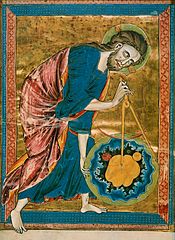
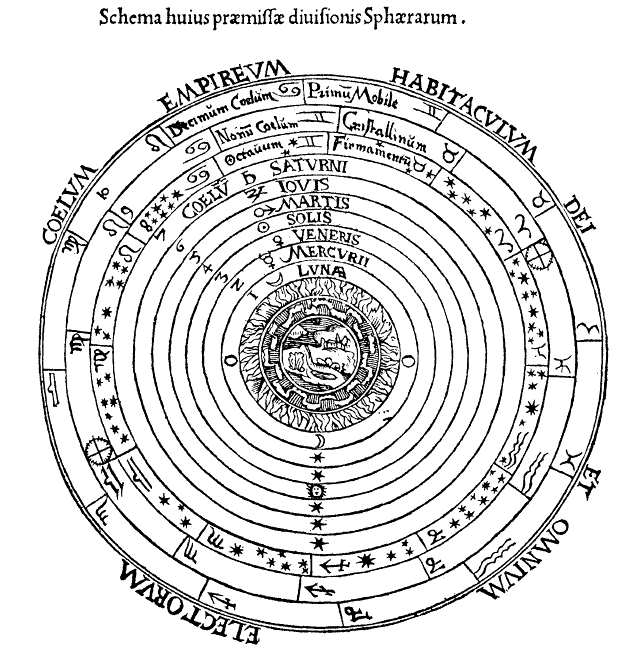

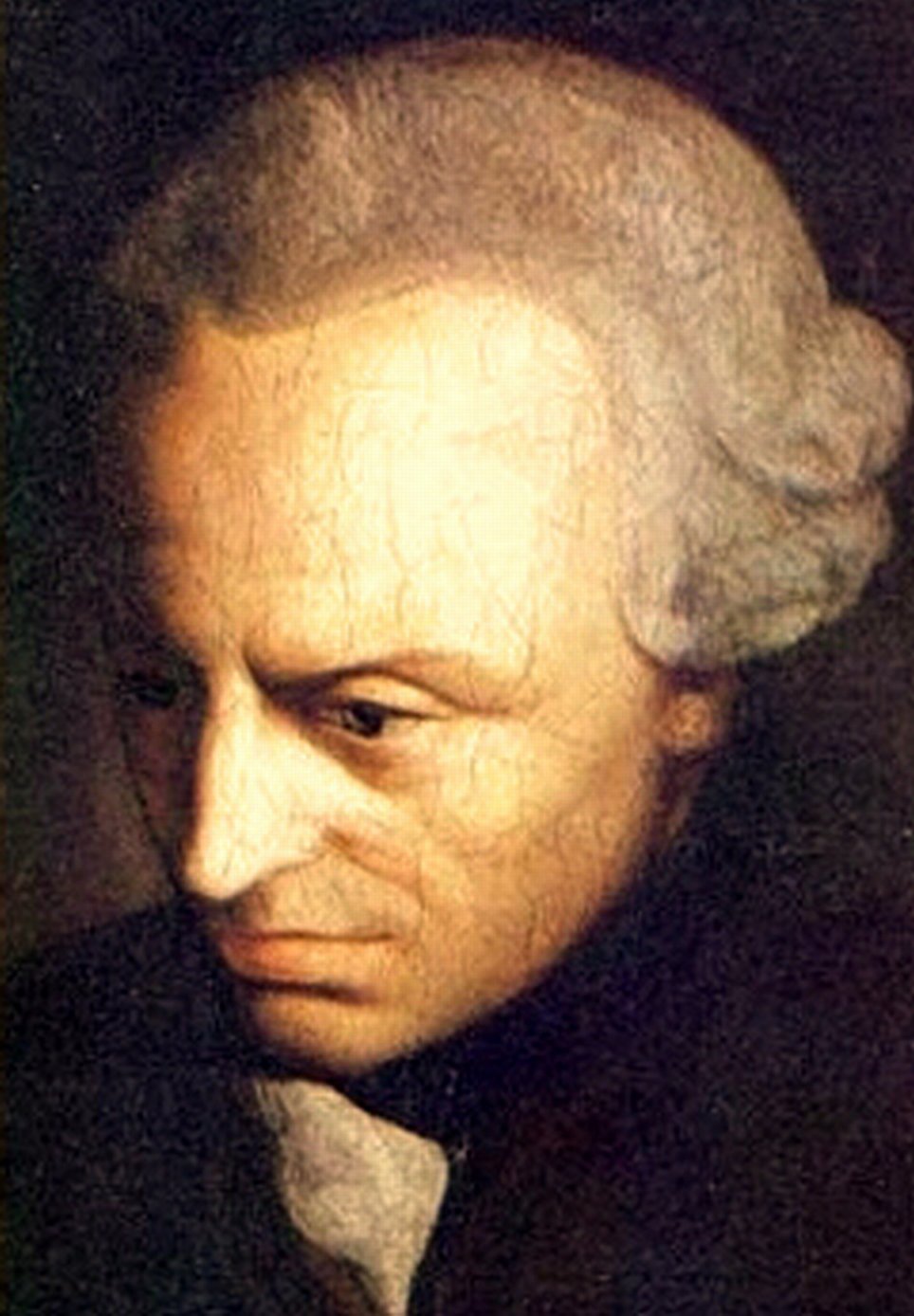
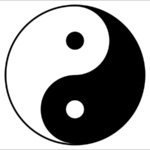
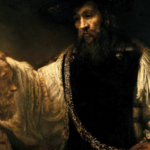
Leave a Reply
Want to join the discussion?Feel free to contribute!